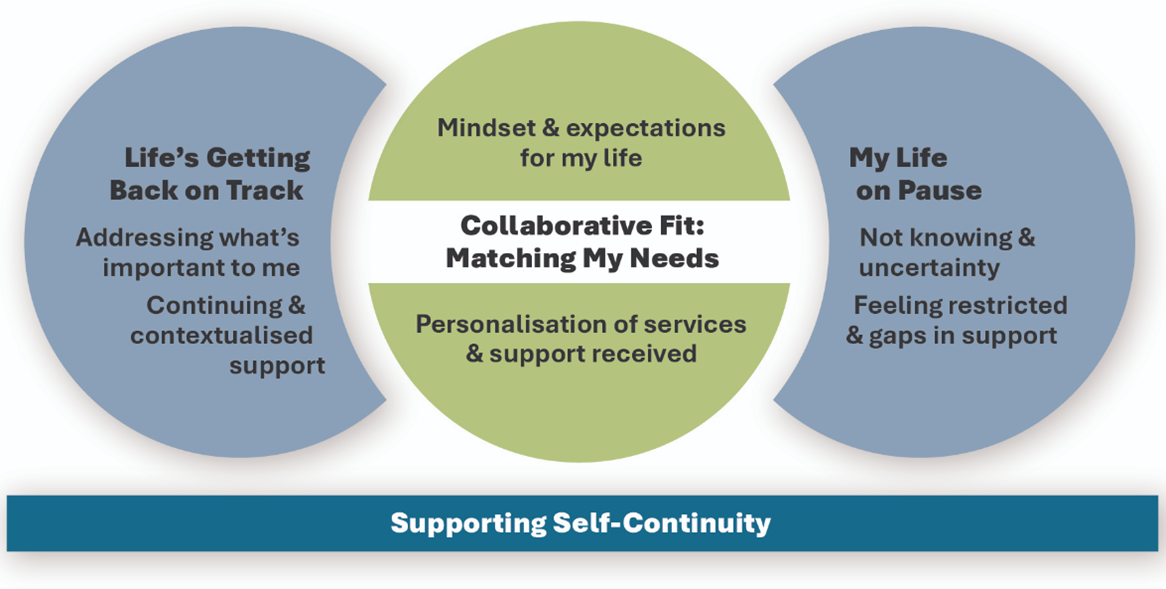Supporting Self-Continuity Post-Discharge: Hopkins Centre Study Illuminates Hospital-to-Community Journey After Brain Injury
TRaCE 3.0 researchers from The Hopkins Centre and partner institutions have published findings from a qualitative study, exploring the priorities, expectations, and lived experiences of people with acquired brain injury (ABI) as they move from hospital rehabilitation into community life. This latest publication, “Supporting self-continuity during the hospital to community transition after acquired brain injury: A qualitative study of priorities, expectations and experiences of rehabilitation”, gives voice to those navigating this critical transition period and how self-identity can be supported beyond the hospital environment. 
Key Insights
- Identity continuity matters: Participants emphasised how retaining a sense of “who I am” through doing activities that were meaningful to them is essential for motivation and psychological wellbeing amid the disruptions of injury and changing rehabilitation services and supports.
- Expectations vs reality: Participants often had clear hopes for independence and community re-engagement, but many people, especially in regional and rural areas, faced gaps in services, unclear pathways, and fluctuating supports post-discharge. Lack of transport was a common unmet need that contributed to feelings of social isolation and disconnection.
- Service responsiveness: People with ABI described benefits to person-centred support, especially when rehabilitation professionals endeavoured to understand them as a person (i.e., their life context, values and support priorities), involved them in their care decisions, and worked collaboratively with them and other therapists from other services to achieve their rehabilitation priorities.
Translation Implications
For clinicians, service providers and policymakers, these findings highlight the importance of embedding strategies to support engagement in productive activities during the transition from hospital to community. Support (e.g., transport, tailored services) to engage in meaningful activities and maintain social connection is especially important for supporting self-continuity (i.e., pre-injury vs post-injury identity), community integration, and agency when other valued activities such as driving and work are not yet feasible.
This research adds a rich, qualitative dimension to the literature on identity continuity after significant injury, complementing studies that call for person-centred approaches to bridge the transition from hospital to community after ABI.
Tags: ABI, Brain Injury, TRaCE, Hospital To Community
Related Articles
- Bold Ideas Better Solutions Symposium 2017
- World-leading centre for rehabilitation and disability research opens
- Improving the ability of employers to communicate with brain injured workers
- THC Researchers take out the 'Most Innovative Idea' Award on an international stage
- Celebrating International Day for People with disability

